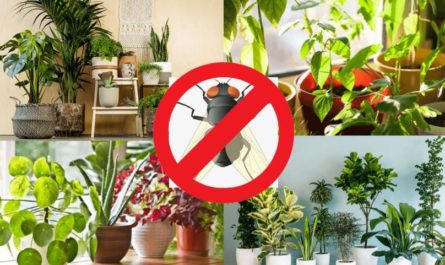Have you ever experienced the uncomfortable sensation of trapped gas or bloating? It can be a frustrating and embarrassing experience, causing discomfort and even pain. Fortunately, there are several treatments available that can help alleviate these symptoms and provide relief.
From simple changes in diet and lifestyle to over-the-counter medications, there are many options to consider. But with so many choices, it can be overwhelming to know where to start. That’s where we come in.
As a digital marketing expert, I have researched and compiled a comprehensive guide to the most effective treatments for trapped gas or bloating.
Whether looking for natural remedies or medical interventions, we’ve got you covered. So sit back, relax, and let us help you find the relief you need to feel your best.

Causes of Bloating or Trapped Gas
1. Food Intolerance
Eating foods difficult for your body to digest can cause bloating. Common food intolerances that can cause bloating include lactose intolerance, gluten intolerance, and fructose intolerance.
- Lactose intolerance occurs when the body does not produce enough of the enzyme lactase to break down the lactose sugar in dairy products.
- Gluten intolerance occurs when the body cannot process the protein gluten, which is found in wheat, barley, and rye.
- Fructose intolerance occurs when the body cannot properly absorb the sugar fructose, which is found in many fruits and vegetables.
2. Eating Too Fast
Eating too quickly can cause bloating because it can lead to gulping down too much air, which can trap gas in the digestive system. Eating too fast can also cause people to swallow food without chewing it properly, making it harder for the body to digest the food.
3. Eating Too Much
Eating large meals can cause bloating because it puts too much pressure on the digestive system, which can cause gas to become trapped. Eating too much can also increase the amount of air that is swallowed.
4. Eating Certain Foods
Certain foods are more likely to cause bloating than others. These include beans, lentils, onions, broccoli, cabbage, cauliflower, apples, and pears. They contain high amounts of fiber, which can be difficult for the body to digest and can cause gas to become trapped.
5. Constipation
Constipation can cause bloating because it can lead to gas becoming trapped in the digestive system. Constipation can be caused by a lack of fiber in the diet, not drinking enough water, or a lack of physical activity.
6. Stress
Stress can cause bloating because it can lead to poor digestion, which can lead to gas becoming trapped. Stress can also lead to people eating and drinking too quickly, which can also cause gas to become trapped.
7. Medications
Certain medications can cause bloating. These include nonsteroidal anti–inflammatory drugs (NSAIDs), steroids, and antibiotics. These medications can disrupt the balance of bacteria in the gut and lead to gas becoming trapped.
14 Natural Remedies for Bloating or Trapped Gas
Here are some simple ways to alleviate this problem.
1. Peppermint Tea
Peppermint tea is a great natural remedy for trapped gas. It helps to relax the muscles in the digestive tract, allowing gas to pass more easily. It also has antispasmodic and anti–inflammatory properties that can help soothe the abdominal discomfort associated with trapped gas. To make peppermint tea, just steep a teaspoon of dried peppermint leaves in a cup of hot water for 10 minutes, then strain and drink.
2. Aniseed
Aniseed is a wonderful herb that can help relieve trapped gas. It is known to have carminative properties, which means it helps to reduce gas in the digestive system. To make aniseed tea, simply steep a teaspoon of aniseed in a cup of boiling water for 10 minutes. Strain and drink the tea before meals or after meals, as needed.
3. Fennel Seeds
Fennel seeds are a great natural remedy for trapped gas. They contain volatile oils that help to reduce gas and bloating, as well as improve digestion. To make fennel tea, just steep a teaspoon of fennel seeds in a cup of hot water for 10 minutes. Strain and drink the tea before or after a meal, as needed.
4. Warm Lemon Water
Drinking warm lemon water can help to reduce trapped gas. The acidity of the lemon helps to break down the gas and makes it easier to pass. To make warm lemon water, just squeeze the juice of one lemon into a cup of warm water and drink it before meals.
5. Ginger Tea
Ginger tea is a great home remedy for trapped gas. It helps to reduce gas and bloating, as well as improve digestion. To make ginger tea, just steep a teaspoon of grated ginger in a cup of hot water for 10 minutes. Strain and drink the tea before meals or after meals, as needed.
6. Exercise
Exercise can help to reduce trapped gas. Moving around helps to get the gas moving and makes it easier to pass. Start by doing some gentle stretching, followed by walking or jogging.
7. Acupressure
Acupressure is a great way to relieve trapped gas. It helps to relax the muscles in the digestive tract, which helps to ease the pain and discomfort associated with trapped gas. To do acupressure, simply press on the points located between your thumb and index finger, as well as on the points located on either side of your belly button.
8. Herbal Supplements
There are many herbal supplements available that can help to reduce trapped gas. Some of the most common herbs used include peppermint, ginger, fennel, and chamomile. Talk to your doctor or a qualified herbalist before taking any herbal supplement.
9. Ginger
Ginger is a popular and most-used herb for treating different health problems. This herb can also get rid of trapped gas or bloating. Ginger contains active ingredients that can alleviate the inflammation in the intestines while relaxing the muscles. To use ginger as your natural remedy:
- Put five thin slices of ginger in a cup of boiling water. Cover it with a saucer or plate. Let it sit for at least ten minutes. You can also add lemon juice or honey and drink this healthy remedy thrice daily.
- You can also eat one teaspoon of grated ginger before meals to reap its benefits. You can also sprinkle grated ginger on your foot if you do not like the taste of ginger alone.
10. Chamomile Tea
Chamomile tea is also an excellent natural remedy to alleviate bloating. It contains antispasmodic and anti-inflammatory properties that can soothe your stomach. This tea is also helpful for treating heartburn. To prepare your chamomile tea:
- Put a chamomile tea bag in a cup of boiling water.
- Cover the cup with a plate or saucer. Let it steep for at least ten minutes.
- Squeeze the tea bag to get all its nutrients. You can also add honey or lemon juice for additional health benefits.
- Drink this tea two times a day between meals to eliminate trapped gas.
11. Pumpkin
Another way to alleviate bloating is by eating pumpkins. It contains a high amount of potassium, vitamin A, and fiber that aids digestion. Since bloating or trapped gas is caused by improper digestion, eating foods rich in fiber, such as pumpkin, can help you digest better.
Include 1 cup of pumpkin in your meal to improve your digestion process and eliminate excess gas. There are many delicious recipes for pumpkin, but you can also steam or broil it.
12. Bananas
Banana is a good source of fiber, which can help you digest foods faster while getting rid of trapped gas or bloating. Aside from fiber, bananas are also rich in potassium, a mineral that aids in regulating bodily fluids and relieves intestinal gas.
Eat bananas regularly to get rid of bloating. You can include it in fruit salads, desserts, or have one as a snack.
13. Caraway Seeds
Caraway seeds have antimicrobial, carminative, and antispasmodic properties. The carvene and carvol, two chemicals in caraway, have soothing properties that can calm the muscles of your digestive tract. This is also effective in getting rid of trapped gas and provides relief immediately from bloating.
- Consume a pinch of caraway seeds whenever you feel bloated. This will give you relief right away. You can also brew the seeds to prepare tea.
- Alternatively, you can eat caraway crackers if the taste of caraway seeds is vital.
14. Activated Charcoal
Activated charcoal has helped many people with the intestinal gas or bloating. Its porous and internal spaces are excellent for trapping chemicals, which is why activated charcoals are used to treat drug overdoses.
Aside from that, it is also used for eliminating excess gas from bacteria in the intestines. Activated charcoal is available in capsule, powder, or tablet form. You should seek medical advice to determine the proper dosage for you. Ensure you also read the recommended dosage on the back of the package.
How to prevent Bloating or Trapped Gas?
1. Avoid Carbonated Beverages: Carbonated beverages such as soda contain carbon dioxide, which can cause bloating and trapped gas. Avoiding these types of drinks can help prevent bloating and gas.
2. Limit Beans and Cruciferous Vegetables: Foods such as beans and cruciferous vegetables like broccoli, cauliflower, and cabbage, contain complex sugars that the body can’t digest, leading to the production of gas. Limiting these types of foods can help prevent bloating and trapped gas.
3. Don‘t Swallow Air: Swallowing air while eating or drinking can cause bloating and trapped gas. To prevent this, be aware of how much air you are swallowing and try to avoid it.
4. Exercise Regularly: Exercise helps to move gas and other digestive products through the digestive system, which can help prevent bloating and trapped gas.
5. Drink Plenty of Water: Water helps to keep the digestive system moving, which can help prevent bloating and trapped gas.
6. Avoid Chewing Gum: Chewing gum can cause you to swallow air, leading to bloating and trapped gas.
7. Avoid Artificial Sweeteners: Artificial sweeteners can cause gas and bloating. Avoiding them can help prevent these conditions.
8. Eat Slowly: Eating too quickly can cause you to swallow air, leading to bloating and trapped gas. Eating slowly can help prevent this.
9. Avoid Eating High–Fat Foods: High–fat foods can slow digestion and cause bloating and trapped gas. Limiting these types of foods can help prevent these conditions.
10. Avoid Eating Large Meals: Eating large meals can cause bloating and trapped gas. Eating smaller meals more frequently can help prevent this.






